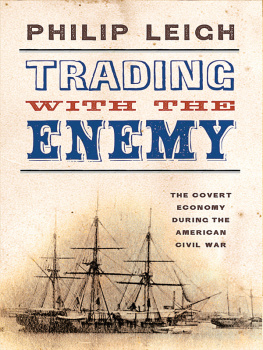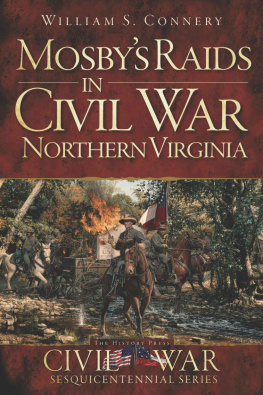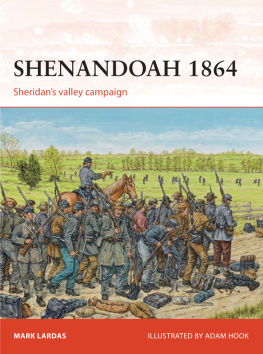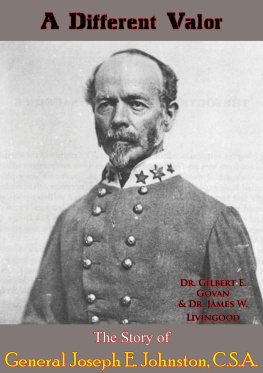BIBLIOGRAPHY
MEMOIRS, DIARIES, AND PERSONAL PAPERS
Bates, Edward. Diary of Edward Bates. Washington, DC: Government Printing Office, 1933.
Browning, Orville. Diary of Orville Hickman Browning. Springfield: Illinois State Historical Society, 1925.
Dana, Charles Anderson. Recollections of the Civil War. New York: D. Appleton, 1913.
Grant, Ulysses. Personal Memoirs. New York: Da Capo, 1952.
Howe, M. A. DeWolfe, ed. Home Letters of General Sherman. New York: Charles Scribner's Sons, 1909.
Johnson, B. T. Memoir of the First Maryland Regiment. Southern Historical Society Papers. Vol. 9, 345352.
Jones, John B. A Rebel War Clerk's Diary. 2 vols. Philadelphia: J. B. Lippincott, 1866.
Knox, Thomas W. Campfire and Cotton Field. New York: Bielock, 1865.
Lamon, Ward Hill. Recollections of Abraham Lincoln. Cambridge, MA: University Press, 1911.
Welles, Gideon. Diary. Vol. 1 Boston: Houghton, Mifflin, 1911.
HISTORICAL DOCUMENTS
A Compilation of the Official Records of the Union and Confederate Navies in the War of Rebellion. Washington, DC: Government Printing Office.
Congress of the Confederate States of America. Statutes at Large. Ch. 25, An Act to Prohibit Dealing in the Paper Currency of the Enemy, February 6, 1864.
Congressional Globe, 38th Cong., 1st sess., vol. 2. Washington, DC: 1864.
Davis, Jefferson. Presidential inaugural address. February 18, 1861. Avalon Project, Lillian Goldman Law Library, Yale Law School. http://avalon.law.yale.edu/19th_century/csa_csainau.asp.
House Commerce Committee. H. R. Summary Report No. 24, Trade with the Rebellious States. 38th Cong., 2nd sess., March 1, 1865.
Lincoln, Abraham. Presidential inaugural address. March 4, 1861. Joint Congressional Committee on Inaugural Ceremonies. www.inaugural.senate.gov/swearing-in/address/address-by-abraham-lincoln-1865.
National Automobile Dealers Association, NADA DATA: State-of-the-Industry Report 2013.
The War of the Rebellion: A Compilation of the Official Records of the Union and Confederate Armies. Washington, DC: Government Printing Office.
BOOKS AND COMPILATIONS
Adams, Charles. When in the Course of Human Events. Lanham, MD: Rowman & Littlefield, 2000.
Adams, Charles Francis, Jr. Richard Henry Dana. Boston: Houghton, Mifflin, 1891.
Anders, Curt. Disaster in Damp Sand. Carmel, IN: Guild Press, 1997.
Andreas, Peter. Smuggler Nation. Oxford: Oxford University Press, 2013.
Atkinson, Edward. Cheap Cotton by Free Labor. Boston: H. W. Dutton, 1861.
Ayers, Alex. The Wit and Wisdom of Mark Twain. New York: Meridian, 1989.
Bailey, Anne J., and Daniel E. Sutherland, eds. Civil War Arkansas. Fayetteville: University of Arkansas Press, 2000.
The Blockade Runners and Raiders. Chicago: Time-Life Books, 1983.
Boaz, Thomas. Guns for Cotton. Shippensburg, PA: Burd Street Press, 1996.
Bogue, Alan G. The Congressman's Civil War. Cambridge: Cambridge University Press, 1988.
Boritt, Gabor. Lincoln and the Economics of the American Dream. Urbana: University of Illinois Press, 1978.
Brooksher, William. War along the Bayous. Dulles, VA: Brassey's, 1998.
Cochran, Hamilton. Blockade Runners. Tuscaloosa: University of Alabama Press, 2005.
Cohn, David. The Life and Times of King Cotton. New York: Oxford University Press, 1956.
Coulter, Merton E. The Confederate States of America: 18611865. Baton Rouge: Louisiana State University Press, 1950.
. The South during Reconstruction: 18651877. Baton Rouge: Louisiana State University Press, 1947.
Cowley, Charles. Leaves from a Lawyer's Life Afloat and Ashore. Lowell, MA: Penhallow, 1879.
Daddysman, James W. The Matamoros Trade. Newark: University of Delaware Press, 1984.
Dattel, Gene. Cotton and Race in the Making of America. Lanham, MD: Ivan R. Dee, 2009.
DeBlack, Thomas A. With Fire and Sword. Fayetteville: University of Arkansas Press, 2003.
Donald, David. Lincoln. London: Jonathan Cape, 1995.
Dougan, Michael B. Confederate Arkansas. Tuscaloosa: University of Alabama Press, 1991.
Durkin, Joseph T. Confederate Navy Chief. Columbia: University of South Carolina Press, 1954.
Eaton, Clement. A History of the Southern Confederacy. New York: Free Press, 1954.
Farrow, Anne, Joel Lang, and Jenifer Frank. Complicity. New York: Ballantine, 2005.
Flint, Henry Martyn. Mexico under Maximilian. Philadelphia: National Publishing, 1867.
Foner, Eric. Reconstruction. New York: Harper & Row, 1988.
Foreman, Amanda. A World on Fire: Britain's Crucial Role in the American Civil War. New York: Random House, 2010.
Hanna, Alfred, and Kathryn Hanna. Napoleon III and Mexico. Chapel Hill: University of North Carolina Press, 1971.
Harrington, Fred. Fighting Politician. Westport, CT: Greenwood, 1948.
Harris, William C. Lincoln's Last Months. Cambridge, MA: Harvard University Press, 2004.
Hart, Albert Bushnell. Salmon Portland Chase. Boston: Houghton, Mifflin, 1899.
Hearn, Chester G. When the Devil Came Down to Dixie. Baton Rouge: Louisiana State University Press, 1997.
Hendrick, Burton. Statesmen of the Lost Cause. New York: Literary Guild, 1939.
Henry, Robert Selph. The Story of Reconstruction. Indianapolis: Bobbs-Merrill, 1938. Reprint, New York: Knockey & Knockey, 1999.
Hollis, Christopher. The American Heresy. New York: Minton, Balch, 1930.
Horgan, James J. A Confederate Bull in a Mexican China Shop. In John M. Belohlavek and Lewis N. Wynne, eds. Divided We Fall: Essays on Confederate Nation Building. St. Leo, FL: St. Leo College Press, 1991.
Johnson, Ludwell. North against South: The American Iliad 18481877. Columbia, SC: Foundation for American Education, 1995. Orig. publ. as Division and Reunion: 18481877. New York: John Wiley & Sons, 1978.
. Red River Campaign. Kent, OH: Kent State University Press, 1993.
Joiner, Gary Dillard. One Damn Blunder from Beginning to End. Wilmington, DE: SR Books, 2003.
Jones, Robert A. Confederate Corsair. Mechanicsburg, PA: Stackpole Books, 2000.
Josephy, Alvin, Jr. The Civil War in the American West. New York: Alfred A. Knopf, 1991.
Kerby, Robert L. Kirby Smith's Confederacy. Tuscaloosa: University of Alabama Press, 1972.
Lamphier, Peg. Kate Chase and William Sprague: Politics and Gender in a Civil War Marriage. Lincoln: University of Nebraska Press, 2005.
Lieber, Francis. Lieber's Code and the Law of War. Chicago: Precedent, 1983.
Mahin, Dean B. One War at a Time. Washington, DC: Brassey's, 1999.
McPherson, James. Battle Cry of Freedom. London: Oxford University Press, 1988.
Miles, Donald. Cinco de Mayo. Lincoln, NE: iUniverse, 2006.
Miller, Nathan. Theodore Roosevelt. New York: William Morrow, 1992.
Moneyhon, Carl H. The Impact of the Civil War and Reconstruction in Arkansas. Baton Rouge: Louisiana State University Press, 1994.
Moore, Jerrold Northrop. Confederate Commissary General. Shippensburg, PA: White Mane, 1996.
Niven, John. Salmon P. Chase. Oxford: Oxford University Press, 1995.
Nulty, William H. Confederate Florida: The Road to Olustee. Tuscaloosa, University of Alabama Press, 1990.









